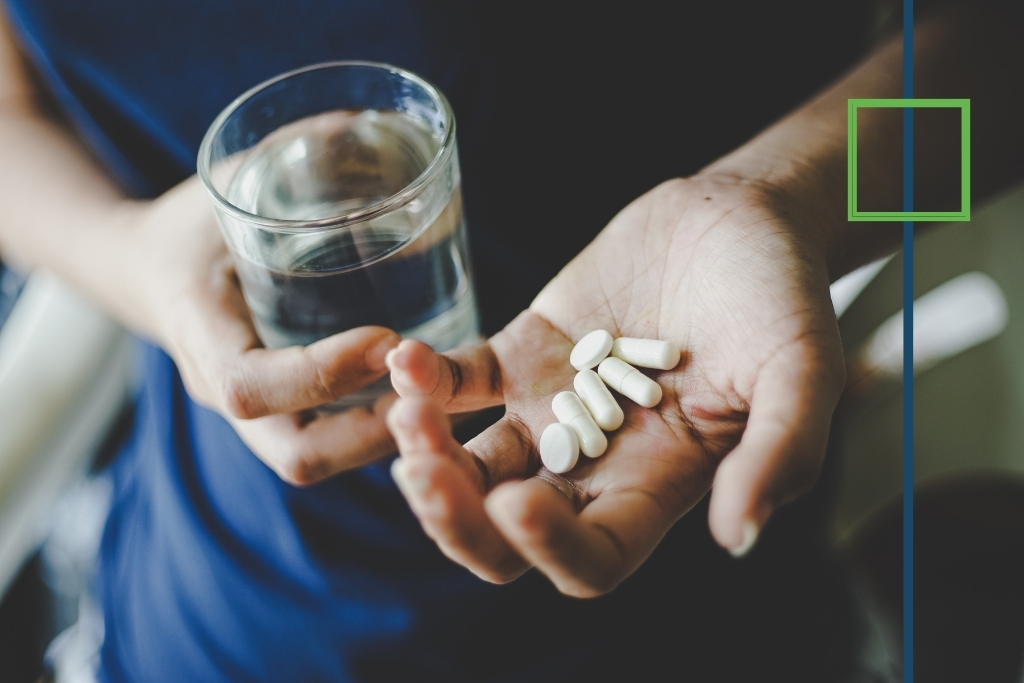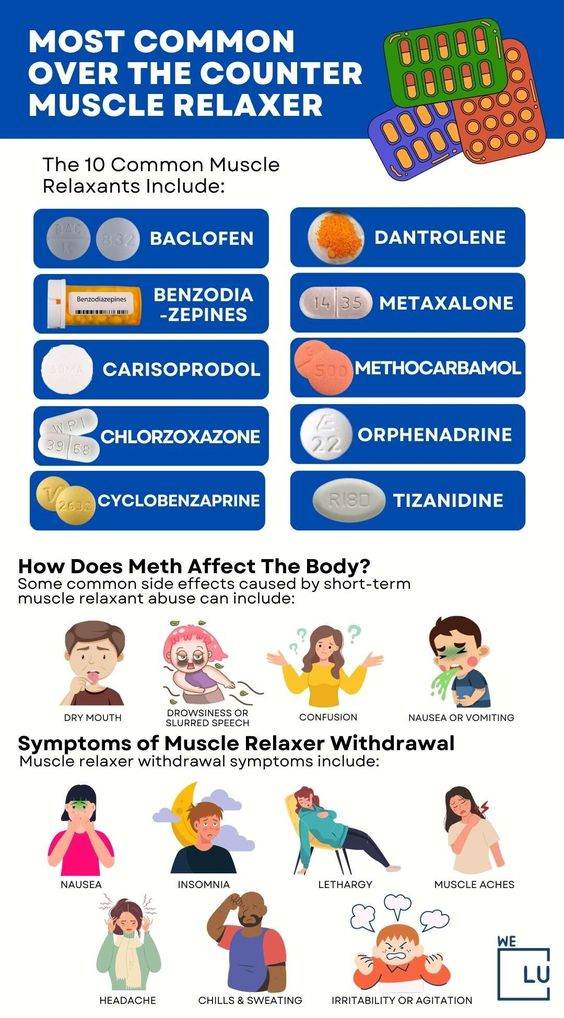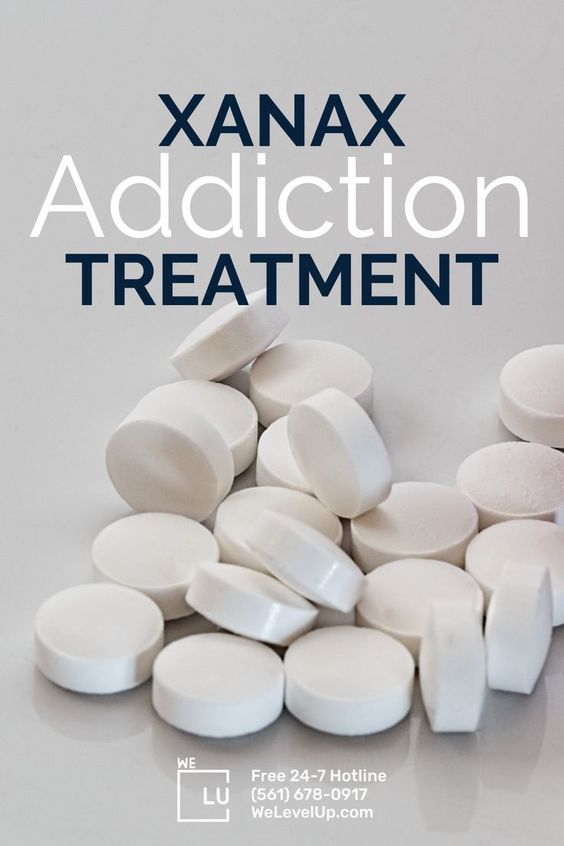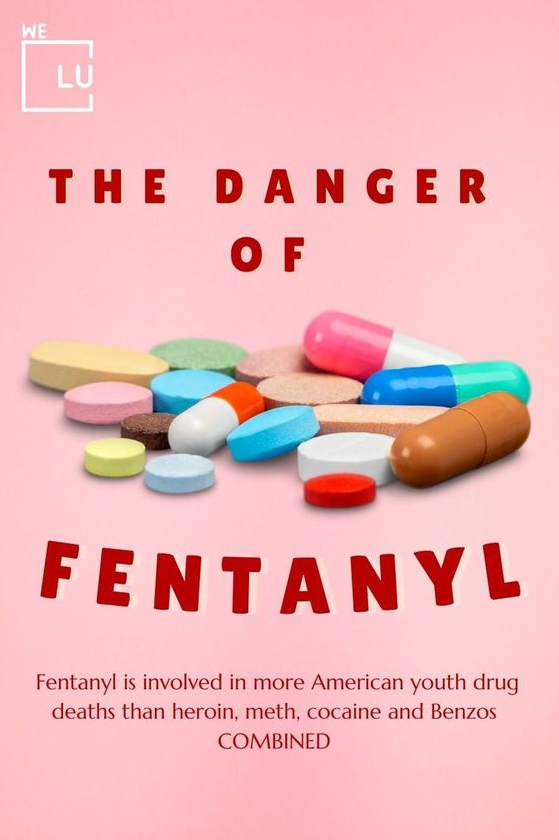Flexeril (cyclobenzaprine) is a muscle relaxant that intercepts pain signals to the brain. Typically, musculoskeletal problems like pain, injury, or spasms are addressed with its prescription. Alcohol and muscle relaxants, like Flexeril, can have serious side effects that include increased drowsiness, impaired motor and cognitive function, chemical dependence, and even accidental death.
Moreover, using these drugs at the same time raises the risk of several side effects, such as respiratory depression, overdose, increased vulnerability to injuries and falls, car crashes, seizures, and more. The central nervous system (CNS) is depressed by both alcohol and muscle relaxants. This combined effect significantly increases the likelihood of multiple risks, underscoring the significance of never combining these substances.
If you or someone you know is suffering from Cyclobenzaprine and alcohol addiction, We Level Up Treatment Centers can help. Speak with our hotline specialists and discover the support and professional-accredited addiction treatment programs we offer.
What Is Cyclobenzaprine?
Cyclobenzaprine is a muscle relaxant medication commonly used to treat muscle spasms and discomfort associated with acute musculoskeletal conditions. It is often prescribed for muscle strains, sprains, and injuries. Cyclobenzaprine is believed to work by affecting the signals between the nerves and the muscles, helping to reduce muscle spasms.
Cyclobenzaprine is typically used as a short-term treatment, usually for a few weeks, to provide relief during the acute phase of muscle-related injuries. It is not recommended for long-term use, as its effectiveness may decrease, and there are potential side effects.
Cyclobenzaprine is the generic name for the medication, but it is also sold under various brand names. Some of the common brand names for cyclobenzaprine include:
- Flexeril: One of the most widely known brand names for cyclobenzaprine.
- Amrix: Amrix is an extended-release formulation of cyclobenzaprine.
- Fexmid: Fexmid is another brand name for the immediate-release form of cyclobenzaprine.
These brand names may be used interchangeably with the generic name, and the choice of which version to prescribe can depend on factors such as the specific needs of the patient and the healthcare provider’s preference.
Can You Drink Alcohol With Cyclobenzaprine?
Misuse Of Cyclobenzaprine With Alcohol
How Long After Taking Cyclobenzaprine Can I Drink Alcohol?

Skip To:
Learn More:
- How Long Does Morphine Stay in Your System?
- Morphine Withdrawal Symptoms, Timeline, and Detox Treatment
- Opiate Withdrawal
- Opioid Withdrawal Timeline
- Opioid Withdrawal Symptoms
- Fentanyl Detox Timeline and Withdrawal Symptoms
- Fentanyl Detox Timeline and Withdrawal Symptoms
- How Strong is Fentanyl? Fentanyl vs Other Opioids
- What is a Lethal Dose of Fentanyl? Deadly Fentanyl Dose Warnings
- What Is Fentanyl?
- Fentanyl Withdrawal
- Hydrocodone vs Oxycodone, Unveiling The Differences
Get Help. Get Better. Get Your Life Back.
Searching for Accredited Drug and Alcohol Rehab Centers Near You? We Level Up Texas Is Opening Soon!
Even if you have failed previously and relapsed, or are in the middle of a difficult crisis, we stand ready to support you. Our trusted behavioral health specialists will not give up on you. When you feel ready or just want someone to speak to about therapy alternatives to change your life call us. Even if we cannot assist you, we will lead you to wherever you can get support. There is no obligation. Call our network hotline today.
FREE Addiction Hotline – Call 24/7
Cyclobenzaprine Side Effects With Alcohol
Get Help. Get Better. Get Your Life Back.
Searching for Accredited Drug and Alcohol Rehab Centers Near You? We Level Up Texas Is Opening Soon!
Even if you have failed previously and relapsed, or are in the middle of a difficult crisis, we stand ready to support you. Our trusted behavioral health specialists will not give up on you. When you feel ready or just want someone to speak to about therapy alternatives to change your life call us. Even if we cannot assist you, we will lead you to wherever you can get support. There is no obligation. Call our network hotline today.
FREE Addiction Hotline – Call 24/7Cyclobenzaprine Food And Drug Interactions
Cyclobenzaprine can interact with certain foods and drugs, potentially affecting its efficacy or leading to an increased risk of side effects. It’s important to discuss all medications, including over-the-counter medicines and dietary supplements, with your healthcare provider. Here are some interactions to be aware of:
- Monoamine Oxidase Inhibitors (MAOIs): Concurrent use of cyclobenzaprine with MAOIs, a class of antidepressants, can lead to serious side effects, including hypertensive crisis. Allow a sufficient time gap between discontinuing MAOIs and starting cyclobenzaprine.
- Sedative Medications: Combining cyclobenzaprine with other sedatives, such as benzodiazepines or certain antihistamines, can increase central nervous system depression, leading to heightened drowsiness and impaired coordination.
- Alcohol: As previously mentioned, alcohol can intensify the sedative effects of cyclobenzaprine, leading to increased drowsiness and impaired cognitive and motor functions.
- Grapefruit Juice: Grapefruit juice may inhibit the metabolism of cyclobenzaprine, potentially leading to increased blood levels of the medication. This interaction could amplify side effects and should be discussed with a healthcare provider.
- Urinary Acidifying Agents: Drugs or substances that acidify urine may decrease the elimination of cyclobenzaprine from the body. This interaction could lead to increased levels of the drug and an extended duration of its effects.
Interactions of Cyclobenzaprine with Other Medications
Cyclobenzaprine oral tablet has the potential to interact with various medications, vitamins, or herbs a person might be using concurrently. An interaction occurs when a substance alters the way a drug functions, which can be detrimental or impede the effectiveness of the drug.
To minimize the risk of interactions, your doctor must closely monitor all medications you take. Make sure to inform your doctor about all medications, including vitamins or herbs, that you are using. For specific information on how this drug might interact with other substances you’re consuming, consult your doctor or pharmacist.
Medications to Avoid with Cyclobenzaprine
Avoid taking monoamine oxidase inhibitors (MAOIs) with Cyclobenzaprine, as it can lead to severe effects on the body. Examples of these drugs include selegiline, rasagiline, and tranylcypromine. Combining this drug with an MAOI or doing so within 14 days of discontinuing an MAOI could heighten the risk of severe side effects, such as seizures.
Interactions Escalating the Risk of Side Effects
Certain medications, when taken with Cyclobenzaprine, can increase the likelihood of side effects due to elevated levels of Cyclobenzaprine in the body. These include:
- Benzodiazepines like triazolam, alprazolam, and midazolam can intensify sedation and drowsiness.
- Barbiturates such as phenobarbital can lead to heightened sedation and drowsiness.
- Drugs used for treating depression, including fluoxetine, venlafaxine, amitriptyline, or bupropion, might elevate the risk of serotonin syndrome.
- Anticholinergic medications like tolterodine or oxybutynin may increase the likelihood of specific side effects like dry mouth or urinary retention.
Interactions Intensifying the Effect of Cyclobenzaprine
Some medications, when combined with Cyclobenzaprine, may result in more pronounced side effects such as increased drowsiness or sedation. It is crucial to consult a doctor about the safety of using another medication along with Cyclobenzaprine and to avoid operating machinery while taking it.
The Dangers of Misusing Cyclobenzaprine
Misuse of Flexeril can potentially lead to overdose, particularly when combined with substances like alcohol. Overdosing on Flexeril might result in severe complications such as cardiac arrest, dangerously low blood pressure, central nervous system depression, or seizures. In case of suspicion that someone has ingested a large quantity of the drug, immediate support should be sought without delay.
Rising Trends in Emergency Visits
Data spanning back to the early 2000s highlights an escalating trend of emergency department visits associated with cyclobenzaprine misuse. In 2010, around 12,411 emergency room visits were estimated to be linked to cyclobenzaprine, marking a notable increase of approximately 101% from 6,183 visits in 2004.
Vulnerability Factors for Cyclobenzaprine Abuse
While anyone can develop a Flexeril addiction, certain factors heighten the susceptibility of specific individuals to developing a problem:
- Personal history of substance or alcohol abuse.
- Family history of substance or alcohol abuse.
- Frequent exposure to drug-oriented environments.
- History of mental health conditions.
- Lack of awareness about the addictive nature of prescription drugs.

Start a New Life
Begin with a free call to an addiction & behavioral health treatment advisor. Learn more about our dual-diagnosis programs. The We Level Up treatment center network delivers recovery programs that vary by each treatment facility. Call to learn more.
- Personalized Care
- Caring Accountable Staff
- World-class Amenities
- Licensed & Accredited
- Renowned w/ 100s 5-Star Reviews
We’ll Call You
Cyclobenzaprine Addiction Statistics
Understanding the scope and impact of Flexeril (cyclobenzaprine) addiction is essential for addressing this issue. By examining Flexeril addiction statistics, we can gain insights into the prevalence, trends, and consequences associated with the misuse and abuse of this medication. These statistics shed light on the challenges faced by individuals and communities affected by Flexeril addiction, highlighting the need for awareness, prevention, and effective treatment strategies.
0.2%
Roughly 0.2% of individuals aged 12 and older in the US reported misusing cyclobenzaprine (the generic name for Flexeril) in 2018.
Source: SAMHSA
2003 to 2015
JAMA Network Open found that the misuse of muscle relaxants, including cyclobenzaprine, increased significantly during this period.
Source: JAMA Network Open
79.1%
From 2004 to 2015, cyclobenzaprine-related emergency department visits increased by 79.1%.
Source: Journal of Addiction Medicine
Opening Soon! First-Class Facilities & Amenities
World-Class High-Quality Addiction & Mental Health Rehabilitation Treatment
Coming Soon! Rehab Centers TourRenowned Addiction Centers. Serene Private Facilities. Inpatient Rehab Programs Vary.
FREE Addiction Hotline – Call 24/7Proven recovery success experience, backed by a Team with History of:
- 15+ Years Experience
- 100s of 5-Star Reviews
- 10K+ Recovery Successes
- Low Patient to Therapist Ratio
- Onsite Medical Detox Center
- Comprehensive Dual-Diagnosis Treatment
- Complimentary Family & Alumni Programs
- Coaching, Recovery & Personal Development Events
Treatment for Addiction to Cyclobenzaprine and Alcohol
It is possible to become addicted to cyclobenzaprine, but the likelihood rises dramatically when alcohol is used in conjunction with this medication. Considered a substance use disorder, addiction is a long-term brain disorder that is exacerbated by the abuse of both alcohol and cyclobenzaprine together, a condition known as polydrug use.
Medical detoxification, which involves 24-hour observation over several days to remove these substances and manage potential withdrawal symptoms, is typically the first step in treating alcohol and cyclobenzaprine abuse. Withdrawal symptoms can range in severity from mild manifestations like achiness and sweating to severe ones like tremors and vomiting.
Medication may be given during detox to lessen the symptoms of withdrawal, and fluids may be provided to stay hydrated. Throughout this taxing phase of your treatment, the addiction care teams and medical professionals on-site offer support.
It may be suggested to undergo inpatient treatment after detox. Psychological therapy, such as behavioral therapies and 12-step programs, is frequently required for polydrug abuse. Evidence-based treatments such as Dialectical Behavior Therapy (DBT), Motivational Interviewing (MI), Cognitive Behavioral Therapy (CBT), and group, family, and couples therapy are used to address the behavioral and psychological aspects of addiction, regardless of the primary substance abuse.
If you need treatment for other medical conditions, your home environment isn’t supportive, or you need an intensive, structured program, it’s best to consider inpatient treatment. Partial Hospitalization (PHP), Intensive Outpatient Treatment (IOP), Outpatient Treatment (OP), and Aftercare are among the additional addiction treatment programs offered.
Aftercare programs provide a network of support and help with housing, legal, and financial needs, offering ongoing support following the completion of drug use treatment. These initiatives promote recovery and enhance patients’ physical and mental health after treatment.
Why Choose We Level Up Treatment Center?
At We Level Up Treatment Center, our dedicated team of professionals is committed to guiding you through every step of your recovery journey. We prioritize your well-being and provide a nurturing environment conducive to healing and growth.
Take the first step towards recovery today. Contact us to begin your journey to a drug-free life. You don’t have to face addiction alone—we are here to help you reclaim control and achieve lasting sobriety.
Start a New Life
Begin with a free call to an addiction & behavioral health treatment advisor. Learn more about our dual-diagnosis programs. The We Level Up treatment center network delivers recovery programs that vary by each treatment facility. Call to learn more.
- Personalized Care
- Caring Accountable Staff
- World-class Amenities
- Licensed & Accredited
- Renowned w/ 100s 5-Star Reviews
We’ll Call You
Muscle Relaxers Cyclobenzaprine, Soma, Baclofen, their Side Effects, Warnings, Types & Risks
Search We Level Up TX Is Cyclobenzaprine Addictive? What You Need to Know Topics & Resources
Sources
- Winek CL Jr, Wahba WW, Winek CL. Drowning due to cyclobenzaprine and ethanol. Forensic Sci Int. 1999 Mar 15;100(1-2):105-8. doi: 10.1016/s0379-0738(98)00161-3. PMID: 10356778. Related Reading: Cyclobenzaprine And Alcohol, Cyclobenzaprine Alcohol, Cyclobenzaprine With Alcohol, Cyclobenzaprine Interactions With Alcohol, Alcohol And Cyclobenzaprine, Cyclobenzaprine Side Effects With Alcohol, Cyclobenzaprine Alcohol Interactions,
- Messiha FS, Barnes CD. Cyclobenzaprine and ethanol interaction. Pharmacol Biochem Behav. 1979 Jun;10(6):947-9. doi: 10.1016/0091-3057(79)90074-1. PMID: 482318. Related Reading: Cyclobenzaprine And Alcohol, Cyclobenzaprine Alcohol, Cyclobenzaprine With Alcohol, Cyclobenzaprine Interactions With Alcohol, Alcohol And Cyclobenzaprine, Cyclobenzaprine Side Effects With Alcohol, Cyclobenzaprine Alcohol Interactions,
- Khan I, Kahwaji CI. Cyclobenzaprine. [Updated 2023 Aug 28]. In: StatPearls [Internet]. Treasure Island (FL): StatPearls Publishing; 2023 Jan-. Available from: https://www.ncbi.nlm.nih.gov/books/NBK513362/
- Medline Plus – Cyclobenzaprine – https://medlineplus.gov/druginfo/meds/a682514.html
- FDA Access Data – Flexeril (Cyclobenzaprine) – https://www.accessdata.fda.gov/drugsatfda_docs/label/2003/017821s045lbl.pdf
- DEA – Cyclobenzaprine – https://www.deadiversion.usdoj.gov/drug_chem_info/cyclobenzaprine.pdf
- Label: Cyclobenzaprine — cyclobenzaprine hydrochloride tablet, film coated. (2019). https://dailymed.nlm.nih.gov/dailymed/drugInfo.cfm?setid=b12fb4ea-182e-462b-b6ed-cfd2f6bb71e8
- Elder NC. Abuse of skeletal muscle relaxants. Am Fam Physician. 1991 Oct;44(4):1223-6. PMID: 1927837.
- LiverTox: Clinical and Research Information on Drug-Induced Liver Injury [Internet]. Bethesda (MD): National Institute of Diabetes and Digestive and Kidney Diseases; 2012-. Muscle Relaxants. [Updated 2017 Jan 30]. Available from: https://www.ncbi.nlm.nih.gov/books/NBK548375/
- Witenko, C., et al. (2014). Considerations for the appropriate use of skeletal muscle relaxants to manage acute low back pain. https://www.ncbi.nlm.nih.gov/pmc/articles/PMC4103716/
- Borenstein DG, Korn S. Efficacy of a low-dose regimen of cyclobenzaprine hydrochloride in acute skeletal muscle spasm: results of two placebo-controlled trials. Clin Ther. 2003 Apr;25(4):1056-73. doi: 10.1016/s0149-2918(03)80067-x. PMID: 12809957.
- Long-term Use of Cyclobenzaprine for Pain: A Review of the Clinical Effectiveness [Internet]. Ottawa (ON): Canadian Agency for Drugs and Technologies in Health; 2015 Feb 23. PMID: 25763449.






